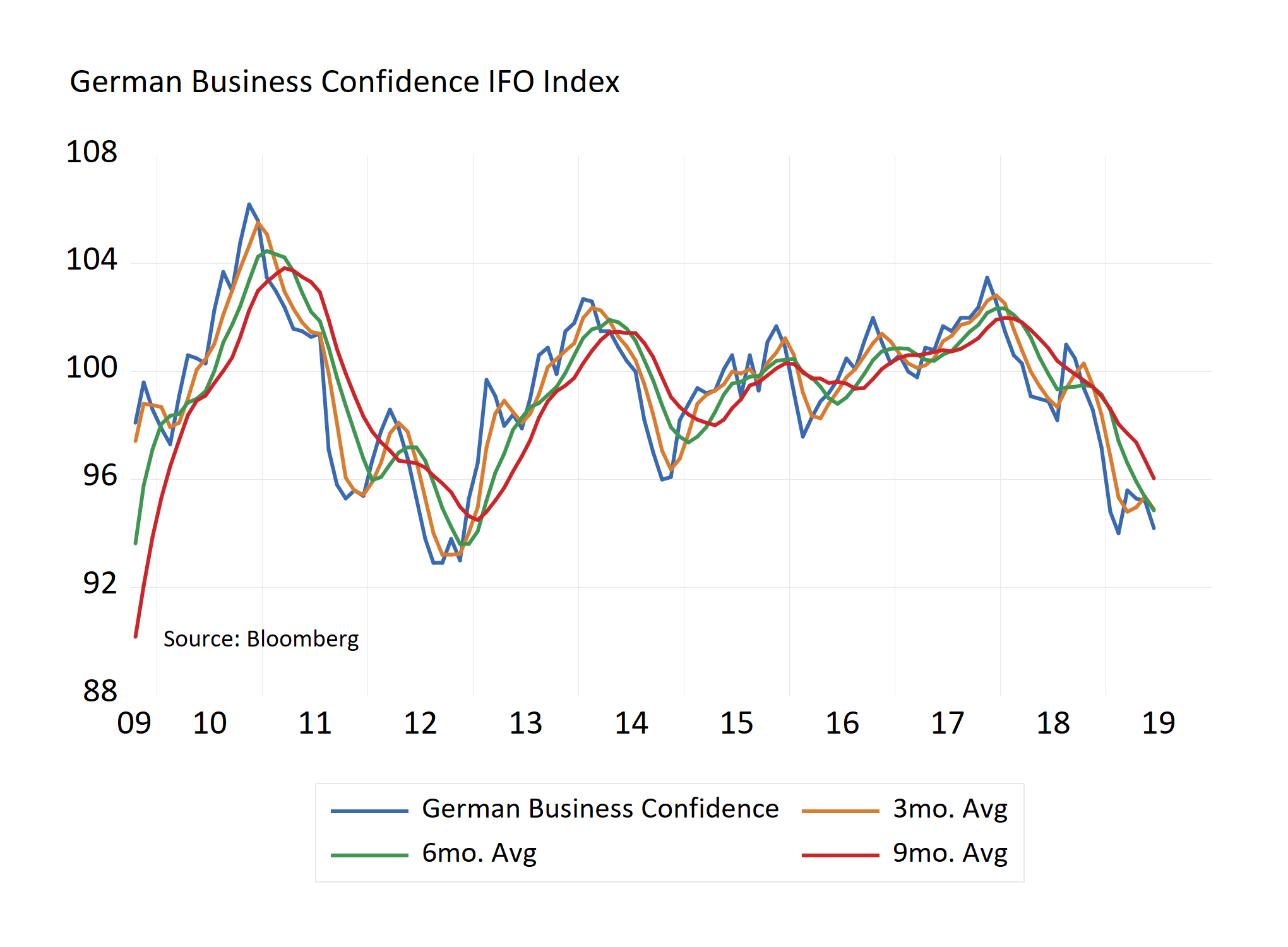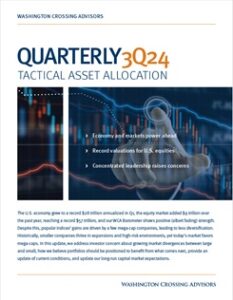Steady As She Goes
Evidence continues to point to continued, moderate growth in the United States economy. Take last Friday’s June employment report, for example. Jobs grew by 224,000 in the United States during June, better than expected. Hourly wages are rising 3.1%, about 1% higher than inflation, suggesting a steady backdrop for household spending. The performance was not so strong, however, as to suggest the Federal Reserve needs to revisit rate hikes anytime soon. The overall unemployment rate remains near 3.7%, below what many economists see as “full employment”, but without actual signs of inflation, there is little anxiety over a potential outbreak of 1970’s style wage-push inflation.
The “steady-as-she goes” jobs report squares with other signals suggesting stability at home. The June Institute of Supply Manager’s ISM report, for example, is at 51.7 suggesting moderate output growth. Overall, the jobs and manufacturing data seem to point to a mixed picture consistent with a moderately expanding economy.
Better Here than There
The same cannot be said for the rest of the world, however. Germany just reported very disappointing industrial orders. This follows a sharp decline in German Business Confidence on the heels of rising U.S. China trade tensions and slowing global growth (chart, below). IHS Markit’s purchasing manager indices (PMIs) for China, Europe, Germany, and the U.K. are all below 50 (signals contraction). Importantly, global bond markets are still pointing to weak conditions outside our borders. While the U.S. 10-year Treasury bond yield slipped back to 1.95%, they seem to be following other countries’ lead. The 10-year German bond has fallen to a -0.4% yield and France’s 10-year bond is at -0.1%. Lower starting bond yields should weigh on fixed income returns from here.

Sticking with Tactical Allocations
We continue to see a relatively more stable situation playing out in the United States versus other parts of the world. While this could change at some point, and we do see value developing overseas, our current read on the data still favors the United States. Therefore, we are sticking with our tactical tilt favoring the United States over other parts of the world and developed markets over emerging. Fading growth in places like Germany, where long-term rates have turned negative, continue to point to a relative return and growth advantage right here at home.
Kevin Caron, CFA, Senior Portfolio Manager
Chad Morganlander, Senior Portfolio Manager
Matthew Battipaglia, Portfolio Manager
Steve Lerit, CFA, Client Portfolio Manager
Suzanne Ashley, Analyst
(973) 549-4168
www.washingtoncrossingadvisors.com
www.stifel.com
Disclosures
WCA Fundamental Conditions Barometer Description: We regularly assess changes in fundamental conditions to help guide near-term asset allocation decisions. The analysis incorporates approximately 30 forward-looking indicators in categories ranging from Credit and Capital Markets to U.S. Economic Conditions and Foreign Conditions. From each category of data, we create three diffusion-style sub-indices that measure the trends in the underlying data. Sustained improvement that is spread across a wide variety of observations will produce index readings above 50 (potentially favoring stocks), while readings below 50 would indicate potential deterioration (potentially favoring bonds). The WCA Fundamental Conditions Index combines the three underlying categories into a single summary measure. This measure can be thought of as a “barometer” for changes in fundamental conditions.
The information contained herein has been prepared from sources believed to be reliable but is not guaranteed by us and is not a complete summary or statement of all available data, nor is it considered an offer to buy or sell any securities referred to herein. Opinions expressed are subject to change without notice and do not take into account the particular investment objectives, financial situation, or needs of individual investors. There is no guarantee that the figures or opinions forecasted in this report will be realized or achieved. Employees of Stifel, Nicolaus & Company, Incorporated or its affiliates may, at times, release written or oral commentary, technical analysis, or trading strategies that differ from the opinions expressed within. Past performance is no guarantee of future results. Indices are unmanaged, and you cannot invest directly in an index.
Asset allocation and diversification do not ensure a profit and may not protect against loss. There are special considerations associated with international investing, including the risk of currency fluctuations and political and economic events. Investing in emerging markets may involve greater risk and volatility than investing in more developed countries. Due to their narrow focus, sector-based investments typically exhibit greater volatility. Small company stocks are typically more volatile and carry additional risks, since smaller companies generally are not as well established as larger companies. Property values can fall due to environmental, economic, or other reasons, and changes in interest rates can negatively impact the performance of real estate companies. When investing in bonds, it is important to note that as interest rates rise, bond prices will fall. High-yield bonds have greater credit risk than higher-quality bonds. The risk of loss in trading commodities and futures can be substantial. You should therefore carefully consider whether such trading is suitable for you in light of your financial condition. The high degree of leverage that is often obtainable in commodity trading can work against you as well as for you. The use of leverage can lead to large losses as well as gains.
All investments involve risk, including loss of principal, and there is no guarantee that investment objectives will be met. It is important to review your investment objectives, risk tolerance and liquidity needs before choosing an investment style or manager. Equity investments are subject generally to market, market sector, market liquidity, issuer, and investment style risks, among other factors to varying degrees. Fixed Income investments are subject to market, market liquidity, issuer, investment style, interest rate, credit quality, and call risks, among other factors to varying degrees.
This commentary often expresses opinions about the direction of market, investment sector and other trends. The opinions should not be considered predictions of future results. The information contained in this report is based on sources believed to be reliable, but is not guaranteed and not necessarily complete.
Washington Crossing Advisors LLC is a wholly owned subsidiary and affiliated SEC Registered Investment Adviser of Stifel Financial Corp (NYSE: SF).



